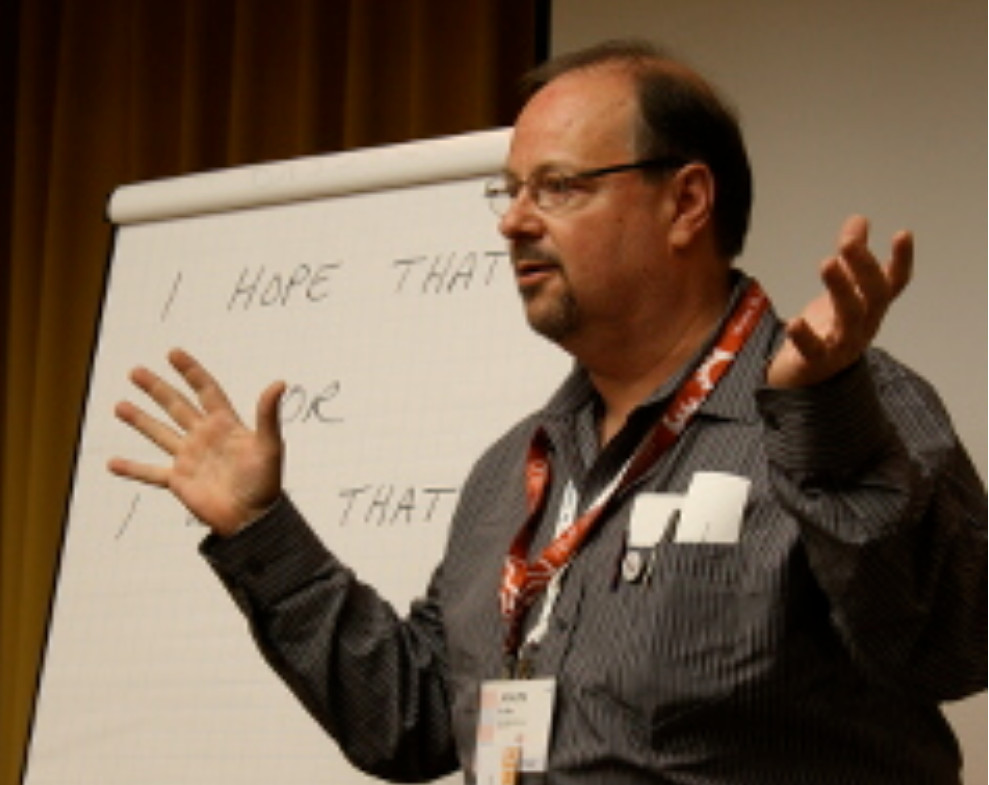De 12 a 25 de junho de 2023, o Programa de Pós-Graduação em Ciência da Computação do IME-USP oferece o curso de pós-graduação “Domain Modeling Techniques for Designing Microservices”. Ministrado pelo pesquisador colaborador do Departamento de Ciência da Computação Joe Yoder, o curso aborda tópicos avançados de Arquitetura de Software, com foco em Técnicas de Modelagem de Domínio para o Projeto de Microsserviços.
Joseph (Joe) Yoder (agilist, computer scientist, speaker, and pattern author) is a research collaborator at IME/USP and the owner of The Refactory, a company focused on software architecture, design, implementation, consulting, and mentoring on all facets of software development. Joe serves as president of the board of The Hillside Group, a group dedicated to improving the quality of life of everyone who uses, builds, and encounters software systems. Joe is best known for the Big Ball of Mud pattern, which illuminates many fallacies in software architecture. He is also a co-author of the book “A Scrum Book: The Spirit of the Game.” Joe teaches and mentors developers on agile and lean practices, software architecture, building flexible systems, clean design, patterns, refactoring, and testing. Joe received the New Directions award at the Software Engineering Institutes (SEI’s) conference on Software Architecture (SATURN), which is given to the presentation that best describes innovative new approaches and thought leadership in the application of architecture-centric practices. Recently, the ACM (Association for Computing Machinery) recognized Joe as a Distinguished Member in the category of “Outstanding Engineering Contributions to Computing.” Joe believes software is still too hard to change. He wants to do something about this and believes that this problem can be approached with good practices, putting the ability to change software into the hands of the people with the knowledge to change it, and bringing the domain experts closer to the development process.

MAC6921 “Domain Modeling Techniques for Designing Microservices”
Ministrante: Joe Yoder
Período: 12 a 25 de junho de 2023
Horário: das 17:00 às 19:00 (veja a grade horária)
Idioma: inglês
Oferecimento: presencial
Valor: gratuito
Local: Auditório Imre Simon (CCSL-IME-USP) – Av. Prof. Luciano Gualberto, 1171 – Butantã, São Paulo – SP
Público-alvo: estudantes e profissionais que já possuam um bom conhecimento de desenvolvimento de software
Matrícula: a matrícula, tanto como aluno regular como aluno especial, deve ser feita pelo formulário de matrícula. (Atenção: se você é aluno de pós-graduação da USP mas não do IME, você deve finalizar a matrícula na sua unidade de origem).
Para mais informações, acesse o programa completo do curso.
Course objectives: Many software systems today are built on the cloud and implemented using the microservices architectural style. Modeling the problem domain and making sure that all stakeholders understand the requirements is a recipe for success when developing software systems and this becomes even more important when building modern microservices-based architectures. Domain modeling techniques have had a resurgence with the advent of Microservices. Domain modeling focuses on ways to identify the key concepts in a domain, and then clearly articulate those concepts through a common understanding or language between domain experts and developers. This course will cover domain modeling techniques specifically those outlined by DDD concepts to design and create microservices. It will also show how to map the results from the domain modeling to a microservice implementation.
Em caso de dúvidas, entre em contato com a Secretaria do Programa de Pós-Graduação em Ciência da Computação, através do e-mail secccpcomp@ime.usp.br.
Pós-graduação em Ciência da Computação no IME-USP
O Programa de Pós-Graduação em Ciência da Computação do IME-USP possui cursos de Mestrado, Doutorado e Doutorado Direto cobrindo todas as principais áreas da Ciência da Computação, conta com aproximadamente 30 orientadores, vários deles são bolsistas de produtividade em pesquisa do CNPq. A qualidade das dissertações e teses desenvolvidas no programa é evidenciada pelos bons resultados obtidos nas defesas. Egressos do programa ocupam posições de destaque na indústria e também na academia, nas melhores universidades do país.
Interessados em ingressar no Programa de Pós-Graduação do IME-USP devem consultar as informações sobre o processo seletivo e seguir as instruções descritas.

